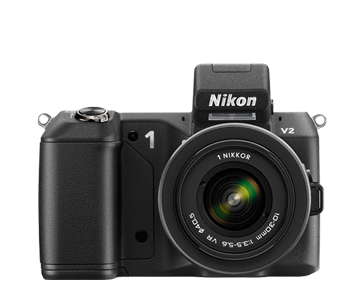Offline
I wasn't sure if this qualified as tech talk or photography. So if I need to mod myself and any of you care, I'll move my own thread.
Anyway, the wife and I will be celebrating our 10 year anniversary this June with a trip to Paris and Beaune. We are in the market for a camera. A couple of years ago I bought a Nikon s9100 and have been terribly disappointed in it. It can take decent pictures from time to time but is seriously unreliable as to whether it will even work. I should probably send it to Nikon for support as it freezes all the time. A quick search will yield thousands of stories just like mine. It's a terrible camera that wasn't what I would call cheap.
I'm willing to spend a little cash this time. The wife was into photography back in college and was the school's event photographer for a couple of semesters. She used film. She has never warmed up to digital but I think is willing to be open minded about a serious digital camera now that she sees every idiot taking decent shots with a DSLR.
That said, something that big may not be ideal for traveling. But the Mrs. has rightly expressed that she doesn't want to fool around with small sensors this time. We want a legit camera with a large sensor and nice lens. It needs to satisfy her desire to play around with traditional settings, etc but also be automatic enough that an idiot like me can take a decent picture of a wine cellar or church.
I'm thinking we could be happy spending anywhere from $500-1200. We aren't serious enough to invest much more than that and I have an issue with buying a digital device for a ton of money only for it to be obsolete in a couple of years. What say you all?
Anyway, the wife and I will be celebrating our 10 year anniversary this June with a trip to Paris and Beaune. We are in the market for a camera. A couple of years ago I bought a Nikon s9100 and have been terribly disappointed in it. It can take decent pictures from time to time but is seriously unreliable as to whether it will even work. I should probably send it to Nikon for support as it freezes all the time. A quick search will yield thousands of stories just like mine. It's a terrible camera that wasn't what I would call cheap.
I'm willing to spend a little cash this time. The wife was into photography back in college and was the school's event photographer for a couple of semesters. She used film. She has never warmed up to digital but I think is willing to be open minded about a serious digital camera now that she sees every idiot taking decent shots with a DSLR.
That said, something that big may not be ideal for traveling. But the Mrs. has rightly expressed that she doesn't want to fool around with small sensors this time. We want a legit camera with a large sensor and nice lens. It needs to satisfy her desire to play around with traditional settings, etc but also be automatic enough that an idiot like me can take a decent picture of a wine cellar or church.
I'm thinking we could be happy spending anywhere from $500-1200. We aren't serious enough to invest much more than that and I have an issue with buying a digital device for a ton of money only for it to be obsolete in a couple of years. What say you all?




